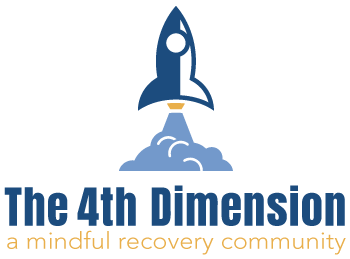25 Aug Individualized Programs for Women and Mothers in Recovery
According to the National Survey on Drug Use and Health data gathered in 2018, 5.6% of women in the United States have a substance use disorder. This same survey found that 4.9 million women (3.5% of the total population) in the U.S. misuse opioids, which has only gotten worse during the pandemic. These statistics only brush the surface of why it is so important that women can find safe, compassionate communities for recovery.
Those of us providing compassionate recovery face a great challenge in women’s reluctance to seek treatment due to cultural stigma. According to the Recovery Research Institute, women are stigmatized more than men because of what are considered “traditional societal roles” as mothers and caregivers.
In addition to the compounded stigma for women suffering from substance use disorders, women also struggle with unique experiences and challenges when it comes to their recovery. Mothers face one of the biggest challenges. In this blog post, we’d like to go over the various struggles specific to women and mothers and how we aim to provide them with a path to recovery that is considerate of these unique challenges.
The Stigma Preventing Women from Seeking Recovery
The Recovery Research Institute points to a history of substance use disorder in women being considered “a selfish, moral failure, that resulted in intentional harm to the family, child, and in terms of placing a burden on society.” Even though recent views of substance use disorder in women are more evolved, stigma still lingers and prevents women from seeking recovery.
At The 4th Dimension, we know that eliminating barriers is critical for starting people down the path of recovery. Our community is accepting of all residents, no matter where they come from or who they are, and we seek to counter these antiquated stigmas with open arms and care for all.
Trauma & Addiction
Women are statistically more likely to be victims of domestic abuse and assault than men, which contributes to the development of substance use disorders. A study published by the National Institute of Health states that the majority of women in treatment for substance abuse had histories of trauma. This same study suggests that sexual abuse or a history of trauma is the “strongest predictor of subsequent alcohol dependence/abuse” and drug use.
Motherhood and Recovery at The 4th Dimension Women’s Community
One of the biggest challenges for mothers in our sober living community is being separated from their children. This often leads to women leaving the sober living community too early.
We understand that every individual has unique needs and therefore requires individualized recovery programs to meet them. The 4th Dimension Women’s Community (4DW) allows residents to bring their children to live with them. This is yet another way we seek to remove barriers so that finding the path to recovery can be a little less daunting.
How Does Having Children in the Recovery Community Work?
After one month at the 4DW program, mothers will be able to bring their children to stay with them throughout their recovery. Studies of programs that allow children have shown positive results for mothers in recovery and for their children and the community as well.
Women in our recovery community who wish to bring their children need to pass certain conditions proving stability, and they will have to arrange their own childcare and follow special house rules.
Find Out More About the Programs Available at The 4th Dimension
Our community provides a safe and compassionate space for women seeking a path to recovery. We understand that each person has taken different walks in life, and so they require different options for their journey through recovery. By providing individualized care and resources, we strive to ensure recovery success for all of our patients.
If you have any questions about women in recovery or about our 4DW program, please contact Ashley McCord, the women’s program director, at 205-732-4911 or [email protected]. For general inquiries about our various programs, please contact us via our contact page.

